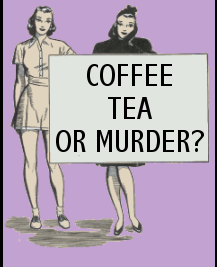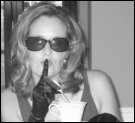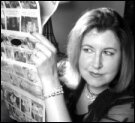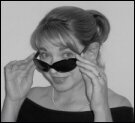Free to be Unfair?
Recently, I was asked to fill in for the guy who edits my weekly newspaper column. The gig was a presentation in front of the local Phi Beta Kappa association and the stated topic was “journalists who become fiction writers” (much like our own beloved Ms. Bradford). My co-presenter was a very nice college professor who’d written a book about 19th century newspapermen who’d gone on to write fiction, and I suppose my editor was supposed to provide the 20th century perspective.
Now, calling me a “journalist” is to stretch the term beyond the snapping point. Sure, I used to do some radio news reporting, and I worked in a TV newsroom as a cameraman, but writing a weekly column in which I basically make fun of politicians and celebrities doesn’t really qualify me as any kind of pundit. Still, they promised me food, so what could I do?
What really motivated me to do the presentation, though, was an interesting little bit of synchronicity. Almost exactly at the same time the e-mail came in asking me to do this, I was reading Mark Bowden’s piece in The Atlantic on the TV show The Wire and its creator, journalist turned non-fiction author turned genius TV producer David Simon.
I’m not going to get into the controversy that article has stirred up, one that seems to have resulted in a fair amount of brouhaha between Simon and Bowden. But I was struck by one quote about the differences between journalism and fiction and why the latter might seem attractive:
The essential difference between writing nonfiction and writing fiction is that the artist owns his vision, while the journalist can never really claim one, or at least not a complete one—because the real world is infinitely complex and ever changing. Art frees you from the infuriating unfinishedness of the real world. For this reason, the very clarity of well-wrought fiction can sometimes make it feel more real than reality. As a film producer once told me, “It’s important not to let the facts get in the way of the truth.”
Fiction can explain things that journalism cannot. It allows you to enter the lives and motivations of characters with far more intimacy than is typically possible in nonfiction. In the case of The Wire, fiction allows you to wander around inside a violent, criminal subculture, and inside an entrenched official bureaucracy, in a way that most reporters can only dream about. And it frees you from concerns about libel and cruelty. It frees you to be unfair.
When someone’s asking you to talk about journalism vs. fiction, and you happen to be reading something at almost that very moment on the very same topic—well, that kind of coincidence is the universe trying to tell you something. And I never argue with the universe.
I don’t really agree, by the way, with Bowden’s last sentence. I think good fiction means being fair to your characters, even your antagonists, and realizing that everyone has his own side of your story. No man, as the saying goes, is a villain in his own eyes. Or, as I like to put it, the villain thinks he’s the hero. But I digress.
It is true that fiction is very attractive because fiction (ideally) has a coherent narrative–a beginning, a middle, and an end. Or, as another author once put it, “the difference between fiction and reality is that fiction has to make sense.” (I’d always thought the quote was from newspaperman turned author Mark Twain, but it turns out it was Tom Clancy. Go figure). And fiction does allow you to get in the heads of your characters, which is the fun part for me.
Unfortunately, in their quest to make things “interesting,” or to get the perfect story, sometimes journalists do go over the line into fiction, except when a journalist does it, they call it “making stuff up.” Jayson Blair, Stephen Glass, and Janet Cook are the most obvious examples, but then you also have crap like that put out by Bob Woodward. Woodward, who used to be considered one of the giants of investigative reporting for his work in breaking the Watergate story, developed a tendency to put incidents and conversations into his books that he could not possibly have been privy to, such as the scene in the opening of “The Agenda” where he describes a conversation between Bill and Hillary Clinton—that took place while they were in bed. Sorry, I’m not buying it.
And then you consider the case of James Frey, whose book “A Million Little Pieces” caused a scandal when someone took the trouble to look at a few police blotters and found out that a lot of the horrible criminal career Frey described for himself was, well, fiction. In fact, one story goes, he’d originally shopped the book as fiction and been turned down everywhere. But as “autobiography”—not only did he get a six figure advance, he made Oprah cry.
So Good Girls and others: what’s your take on truth vs. fiction? Can fiction really get the real story, the real truth, across better than straight journalism? Is it okay for journalists to use fictional techniques to get the “real truth” across? For that matter, is a coherent narrative–a beginning, middle and end—really all that important for fiction if the idea of fiction is to reflect real life?
# #
***J.D. Rhoades is the author of the Jack Keller series, set in and around his native North Carolina. His first novel, THE DEVIL’S RIGHT HAND, was published in 2005. He’s also a newspaper columnist, practicing attorney, and friend of Good Girls everywhere. He’ll be at the South Carolina Book Festival February 22d through 24th.















